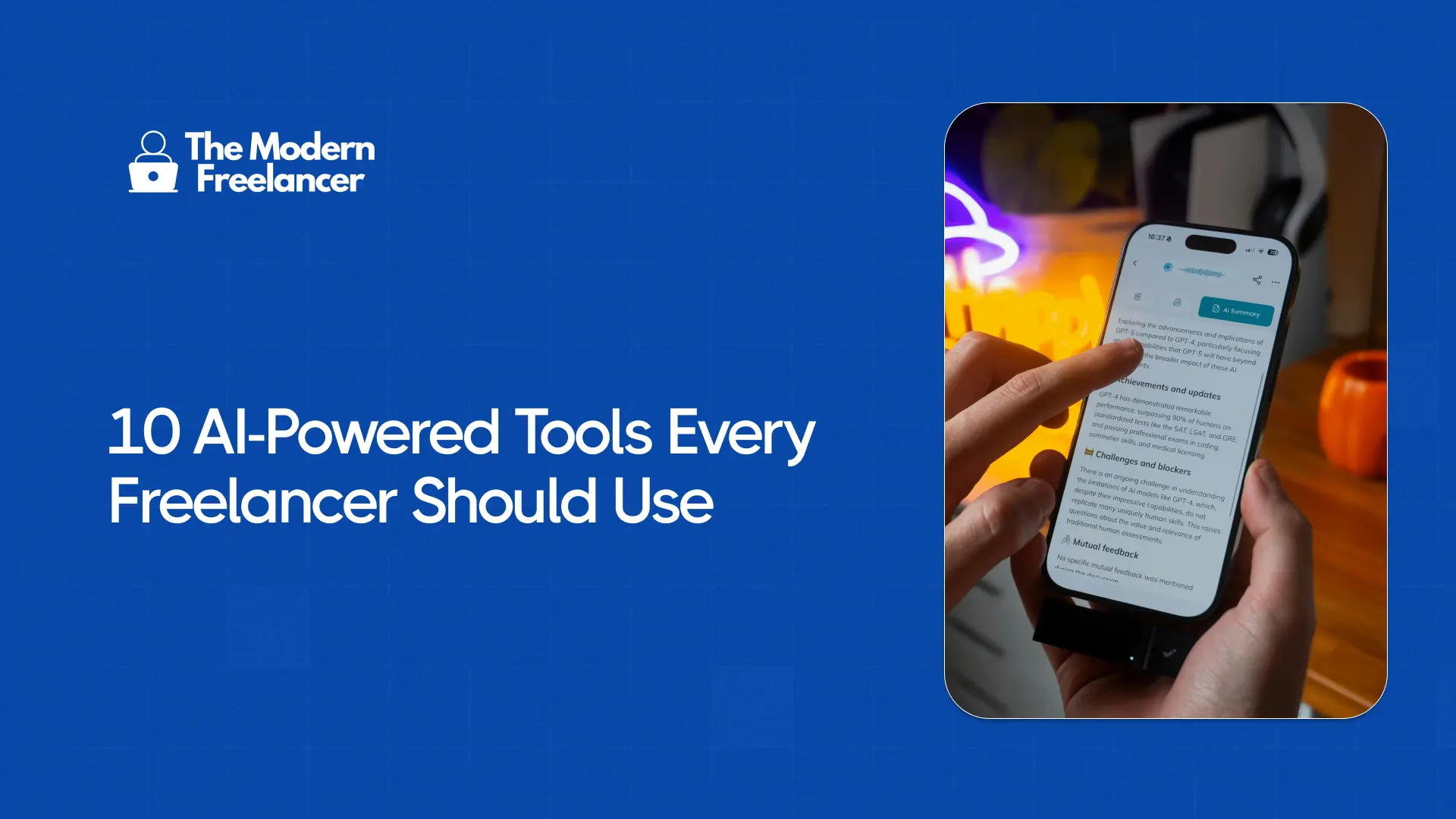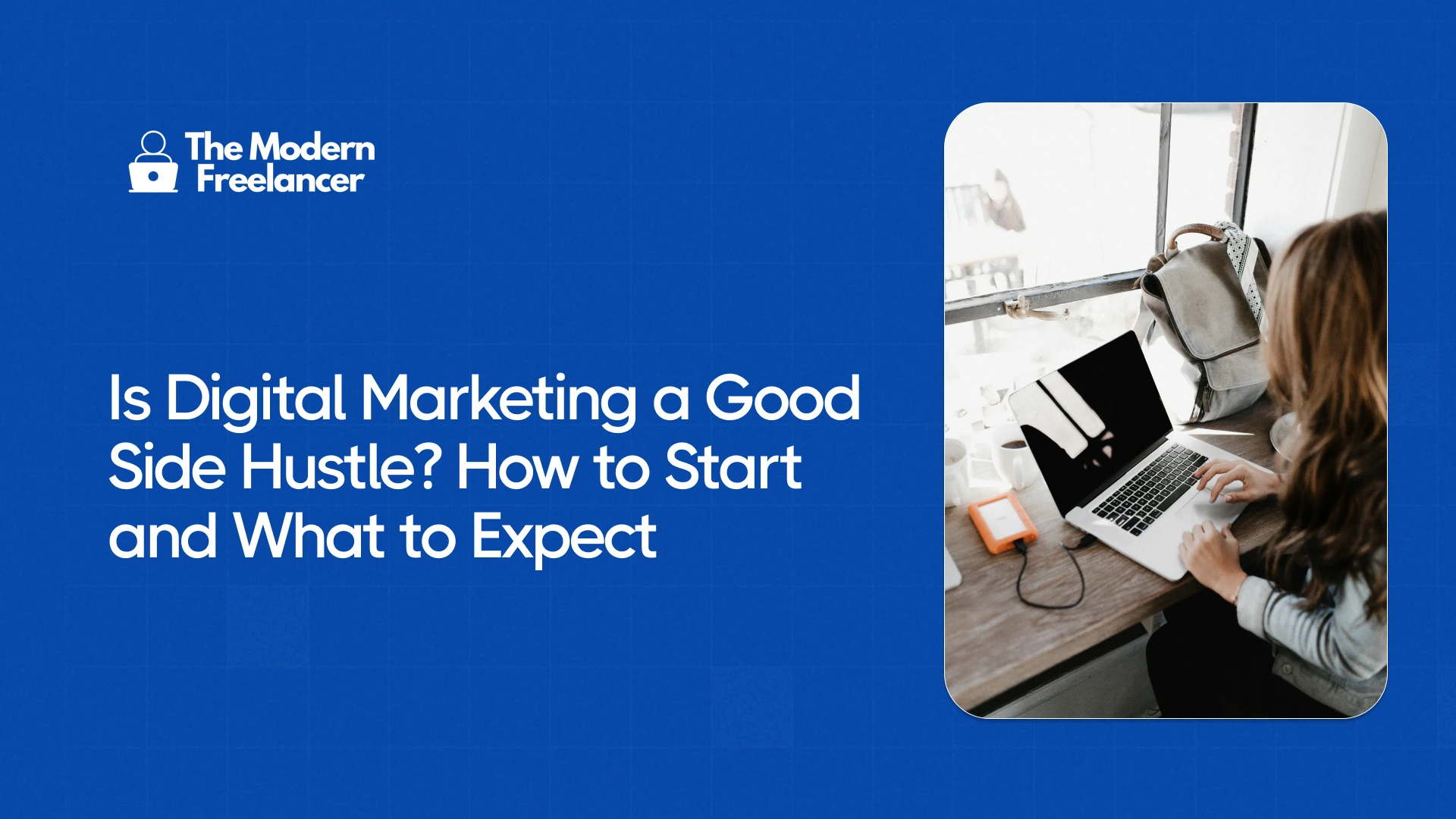The "Great Lock-In" is a Lie (Why is Hustle Culture Toxic?)
Discover why hustle culture is toxic. Learn what hustle culture really is, see real hustle culture examples, and find a balanced way to work and live.
.webp)
Heads up: Some of the links below are affiliate links, which means I may earn a small commission if you choose to use them — at no extra cost to you. I only recommend tools I personally use and trust.
I've been seeing the “Great Lock-In" content all over my IG feed this week. If you’re unfamiliar with it, it’s this idea that September through December is your last chance to focus and hit your goals for the year. Everyone's saying "September is the new January" and pushing this narrative of locking in for the final sprint.
And honestly? I kind of agree with the energy.
Don’t underestimate how much you can get done in three months and how much you can change your life before the year ends. That could mean transitioning from a 9-to-5 to full-time freelance marketing by January if you play your cards right.

What’s bothering me about this trend is the assumption that if you weren’t locked in all year, your 2025 was a failure.
Because that’s complete bullshit.
Let me tell you why, and share the framework that's actually made me more successful by working less (at times).
What is Hustle Culture?
Hustle culture is the belief that you're only worthy when you're working. It's the Instagram-ified religion of “grind harder,” “sleep when you’re dead,” “no days off,” and “if you’re not building, you’re falling behind.” It sounds motivating, but it's basically a productivity cult disguised as ambition.
- It makes freelancers think:
- If you aren’t booked out every month, you’re failing
- If you take a break, your business will collapse
- If you enjoy your life, you’re “not hungry enough”
But hustle culture doesn't make you successful. It just makes you exhausted.
How Toxic Hustle Culture Harms You
Hustle culture is this idea that the only path to success is to work harder, sleep less, and be constantly productive. It glamorizes grinding at 2 a.m., answering emails on vacation, and never taking a breath. It sounds inspiring on Instagram, but in real life it just trains you to believe that your value is tied to how much you produce.
You stop thinking long-term. You make decisions out of fear instead of strategy. And the second you slow down, you feel guilty, like you're doing something wrong. That’s a mental trap.
Freelancing was supposed to create freedom, not a 24/7 pressure chamber.
My "Unproductive" Summer (That Was Actually Perfect)
From June through August, I didn't do much. I mean, literally nothing productive by typical standards.
Here's what I did instead:
- My best friend got married in Spain
- Took my dad on a Father's Day trip
- Went to a buddy's wedding in the US
- Spent time in Portugal riding dirt bikes
- Celebrated in Saint-Tropez with friends
- Went to Tomorrowland
- Celebrated my own birthday with 130 people flying to France
I really felt like it wasn't a productive summer business-wise.
But here's the thing: I made my peace with it because one of my mentors once told me something that changed everything.
The Sprints and Plateaus Framework
My mentor Vincent is a senior executive at Oracle, and even though he's not an entrepreneur, this concept applies perfectly to freelancing and business building.
He taught me about "Sprints and Plateaus."
Sprints are periods where you're growing like crazy - acquiring new clients, launching projects, pushing hard on business development.
Plateaus are periods where your business isn't declining, but it's not growing either. You're maintaining what you've built. You're using this time to recharge and actually enjoy the fruits of your labor. Your plateau periods aren't failures. They're the whole point of building a successful full-time freelance business in the first place.
Here's the key insight: At the end of the day, that's what it's all about - enjoying the fruits of your labor.
Why You Can't Always Be "Locked In"
If you're always locked in, you're really not locked in.
Think about it: If you're constantly in sprint mode, you'll burn out. You'll lose perspective. You'll forget why you started freelancing in the first place.
The plateau periods matter because:
- They let you recharge your creative energy
- They give you time to enjoy what you've built
- They provide perspective on what's actually working
- They prevent burnout and maintain long-term sustainability
During my summer plateau, I wasn't being lazy. I was enjoying the freedom that six years of freelancing had created. I was living the life that my business was designed to enable.
Examples of Hustle Culture
Want to know what hustle culture actually looks like in real life? Here are some classic signs:
- Feeling anxious if you're not posting on LinkedIn every day
- Working weekends because you "should be doing more"
- Checking Slack on vacation
- Taking every client call even when you know they're a bad fit
- Turning hobbies into productivity projects
- Feeling guilty for sleeping in
- Not celebrating wins because you're already on to the next goal
If you've ever sat on a beach thinking, “I should be working,” congratulations, you’ve been infected.
My Current Relationship With Hustle
I won’t lie: I used to worship hustle culture. I thought the freelancers making the most money were the ones sleeping the least. Turns out the opposite is true.
These days:
- I sprint hard, but I stop on purpose
- I build freedom into my business model
- I don’t feel guilty for living my life
- I measure success in time, not hours worked
I'm more productive when I rest. I'm more creative when I disconnect. I'm a better business owner when I'm not drowning in work. If hustling 365 days a year actually worked, every burnout victim would be a millionaire.
My Current Sprint (And Why Timing Matters)
September 1st, I was back in Dubai and ready to sprint.
I’ve been “locked in” on a new sprint for 10 days and I'm basically growing the crap out of my business, my newsletter, and my social media through the end of the year. I'm super excited about this sprint.
(And if you need inspiration for your end-of-year sprint, read my full Back-to-School Freelance Strategy).
My next plateau will probably be in December when I go skiing with my girlfriend and friends for Christmas.
This isn't random. The timing aligns with natural business cycles:
- September-November: Clients are pushing to hit year-end goals (perfect for sprints)
- December-January: Business naturally slows down (perfect for plateaus)
- February-May: New year energy and budget cycles (sprint time)
- June-August: Summer slowdown, vacation season (plateau time)
How to Identify Your Natural Cycles
Your sprints and plateaus don't have to match mine. But you should identify your natural rhythms for effective time management.
Questions to ask yourself:
- When do you feel most energetic and focused?
- When do your clients typically need the most help?
- When do you naturally want to slow down and recharge?
- What personal commitments or interests deserve plateau time?
The key is being intentional about both phases instead of feeling guilty during plateaus or burning out during sprints.
The Bottom Line
“The Great Lock In” isn't wrong about September being a powerful time for growth. But it's wrong about needing to be locked in year-round to be successful.
Real success comes from understanding your cycles and working with them, not against them.
Sometimes the most productive thing you can do is take a break. Sometimes the best business decision is to go to Tomorrowland with your friends.
Your plateau periods aren't failures. They're the whole point of building a successful freelance business in the first place.
--
Want more freelance tips that actually work?
Subscribe to my newsletter and get actionable freelance marketing strategies delivered to your inbox weekly.



